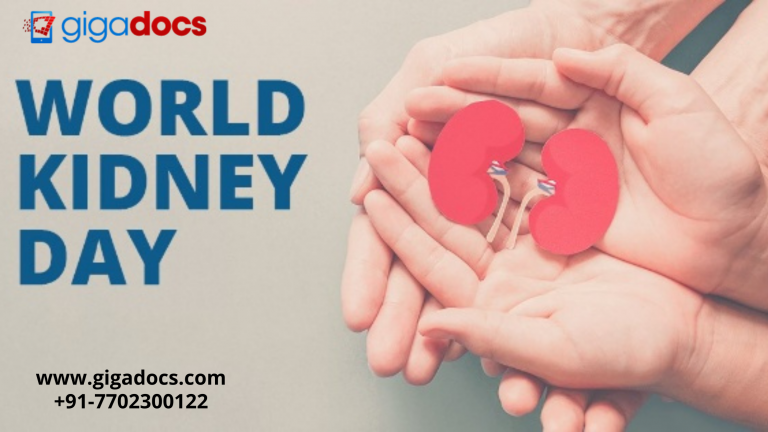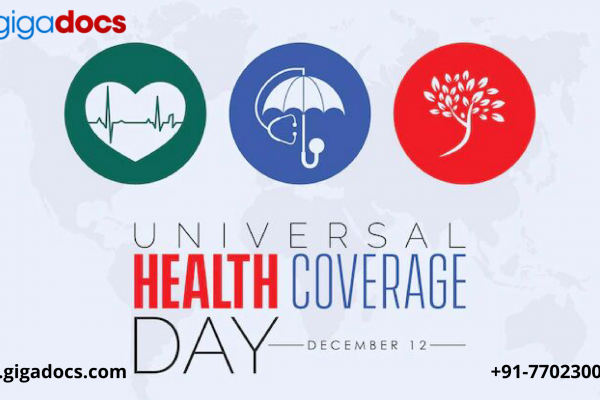Chronic kidney disease or chronic renal disease is a gradual decline in kidney function. Advanced chronic kidney disease can cause dangerously high fluid, electrolyte, and waste levels in the body.
Chronic Kidney Disease
Your Kidney’s main function is to filter your blood and remove the waste. CKD causes kidney damage and reduces your kidneys’ ability to keep you healthy. If your kidney disease worsens, wastes in your blood can build up to dangerously high levels, making you feel unwell.
Kidney disease increases your chances of developing serious health conditions, mainly cardiovascular and blood vessel disease, which develop gradually over time. However, early detection and treatment can go a long way in preventing the progression of these diseases.
Symptoms of Chronic Kidney Disease
The signs of kidney disease are frequently ambiguous; other illnesses can also cause them. One may not notice any symptoms of the kidney disease onset till damage has happened- this is because the kidneys can compensate for lost function. Depending on the impact, kidney disease may result in:
- Swelling of feet and ankles
- Dry, itchy skin
- Decreased mental sharpness
- Muscle cramps
- Chest pain
- Nausea
- Hypertension (High BP)
- Shortness of breath
- Vomiting
- Loss of appetite
- Fatigue and weakness
- Sleep problems
- Excessive or Lack of Urination
Causes of Chronic Kidney Disease
Chronic kidney disease occurs when a disease impairs kidney function, which further causes progressive kidney damage. Several diseases which add to kidney diseases include:
- Diabetes type 1 or Diabetes type 2.
- Interstitial nephritis (inflammation of the surrounding structures of the kidney).
- Prolonged urinary tract obstruction (caused by conditions like enlarged prostate, kidney stones).
- Glomerulonephritis (inflammation of the filtering units of the kidney).
- Other inherited diseases, like polycystic kidney disease.
World Kidney Day (WKD)
Chronic kidney disease is common and dangerous: one out of every ten adults worldwide has it, and if left untreated, it can be fatal.
While early detection allows for disease management and further care to help prevent morbidity and mortality, they have a high chance of improving cost-effectiveness and sustainability if a person is detected early. One must note that kidney disease-related mortality increases yearly; by 2040, kidney disease will be the fifth leading cause of death.
World Kidney Day celebrated on March 10th, is a global health awareness campaign highlighting the importance of the kidneys. Let us aim to raise kidney health awareness and education.
Risk Factors of Chronic Kidney Disease
Chronic kidney disease can strike anyone at any age. Some people, however, are more likely than others to develop kidney disease. The following factors pose a higher risk of developing kidney disease:
- Age, over 65.
- Belong to a population with a high prevalence of diabetes or high blood pressure.
- Have a history of kidney failure in your family.
Complications of Chronic Kidney Disease
Chronic kidney disease can impact almost every organ in your body. Complications can include:
- Fluid retention can cause arm and leg swelling, high blood pressure, and fluid in the lungs (pulmonary edema).
- End-stage kidney disease causes irreversible kidney damage, necessitating dialysis or a kidney transplant for survival.
- Weak bones and a higher risk of fractures.
- Cardiovascular disease.
- Pericarditis is an inflammation of the sac-like membrane that surrounds the heart.
- A sudden increase in potassium levels in your blood (hyperkalemia) can impair your heart’s function and can be fatal in some cases.
- Anemia.
- Complications of pregnancy pose risks to both the mother and the developing fetus.
- Damage to your central nervous system can result in difficulty concentrating, personality changes, or seizures.
Chronic Kidney Disease Prevention
- On over-the-counter medications, follow the manufacturer’s directions. Follow the directions on the package when taking nonprescription pain relievers such as aspirin, ibuprofen, Tylenol, and others.
- Taking too many pain relievers for an extended period may cause kidney damage.
- Keep a healthy weight. Maintain your healthy weight by being physically active most days of the week. Consult your doctor about healthy weight loss strategies if you need to lose weight.
- Cigarette smoking can harm your kidneys and aggravate pre-existing kidney damage. If you smoke, talk to your doctor about quitting methods.
- Work with your doctor to control any diseases or conditions that increase your risk of kidney disease. Inquire with your doctor about tests to detect signs of kidney damage.
Chronic Kidney Disease Diagnosis
Your doctor may perform a CT scan to obtain a picture of your kidneys and urinary tract to detect any kidney or urinary tract structure problems. They can use this test to determine if your kidneys are too large or small or have a kidney stone or tumor tissues. A nephrologist may conduct a biopsy of the kidney to check for a specific type of kidney disease, determine the extent of kidney damage, and help plan treatment.
Download the Gigadocs App, to reach the best nephrologists around you-
- IOS App – apple.co/2W2iG4V
- Android App – bit.ly/33AQoRC
To know more e-mail, at info@gigadocs.com




